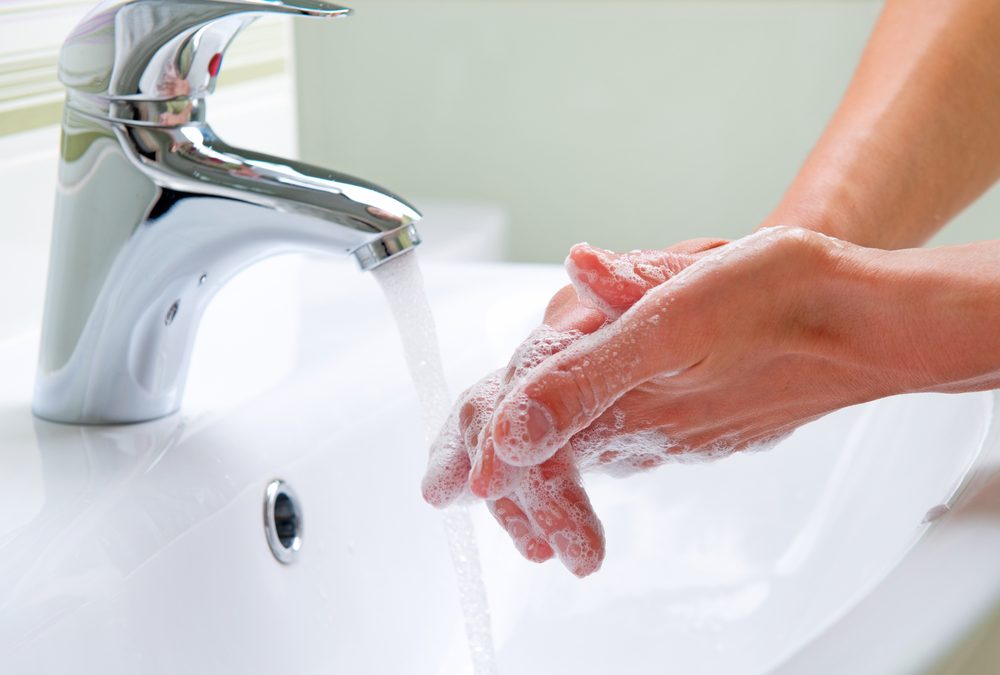Greetings!
Dear Beamers,
Cleanliness is one of the most essential habits one must cultivate. Like attributes such as success, intelligence, and wealth, it is a significant factor that, when used to describe a person, indicates class. Although it may seem easy to practice, it is surprising that so many people neglect it. Even on a Monday morning in a staff bus, one can detect unpleasant odors from professionals dressed for work; shouldn’t everyone have bathed and be smelling fresh? Unfortunately, this issue persists and could worsen if not addressed. Therefore, in line with our commitment to continually highlight and provide solutions to pressing issues, this week’s newsletter will discuss the benefits of cleanliness on overall wellness.
The value of cleanliness in our lives cannot be overstated. It is a fundamental practice that surpasses many skills essential for a decent lifestyle. Cleanliness demonstrates intentional commitment and discipline, as it requires daily attention rather than occasional effort. Establishing a routine and maintaining personal awareness to stay clean and tidy in all activities reflect a person’s mindset. This consistency and consciousness are foundational elements for building a leadership lifestyle across various aspects of life.
“Cleanliness is next to godliness. Before we focus on our homes and environment, we need to take care of ourselves first. Start with trimming your nails regularly, washing your hands before cooking or handling food, washing hands before and after meals, brushing your teeth twice a day, washing your hands after using the restroom, and bathing every day. No one needs be told to know this simple basics of good living.” Says Nutritionist Francess
First impressions are primarily based on physical appearance. Naturally, being clean and well-groomed allows you to create a positive first impression. No one appreciates a person with unpleasant body odor. Cleanliness significantly impacts your meetings, deals, and interactions. It is a criterion that speaks volumes about self-care through the sight and smell of observers, even from a distance. Even someone who struggles with maintaining cleanliness will seek to associate with a clean person because cleanliness is welcoming, conducive, and graceful. It exudes positive energy, which is why it is often associated with spirituality.
Cleanliness is a profound concept, extending beyond physical and mental activity to reflect our spirituality and reverence for God. This is encapsulated in the well-known proverb, “Cleanliness is next to Godliness,” which underscores the importance of maintaining cleanliness in our lives. Recognizing the presence of a transcendent being and aspiring for communion with this entity—body, soul, and spirit—requires a high level of sanctity. This involves a heart free from unclean thoughts, hands devoid of unrighteous deeds, purified minds, cleansed bodies, and hearts unburdened by negative and ungodly thoughts.
Olopade Isaiah believes that cleanliness plays a significant role in our spiritual consciousness. In his words,
“When I see someone dirty, I get irritated and sometimes think they might not be religious because I see cleanliness as a sign of spirituality. Cleanliness is very important in spirituality, which is why it’s taught in places of worship. You wouldn’t welcome your boss into a dirty home; everyone would rush to clean up. How much more for God? Religious practices like washing feet and hands and cleaning the environment before services are done daily, not weekly or monthly, to make our lives and surroundings suitable for spiritual connection.”
Additionally, cleanliness leads to increased productivity in tasks. In the workplace, employees are more motivated to be productive when the environment is clean and conducive. The absence of unpleasant smells and litter, along with sparkling clean work desks, signals the brain that it is work time, allowing for full concentration. This enhanced concentration occurs because the brain and sensory organs are not distracted by a messy and dirty environment, which can hamper productivity. An unclean workplace environment not only threatens your health but also the health of your family. After work, you return home to play with your children, interact with your spouse, and converse with elderly family members. Therefore, it is crucial to be aware of how cleanliness impacts each of these relationships.

There are several benefits of cleanliness, and one of the most essential is its significant role in preventing infections and maintaining health. By maintaining cleanliness, you can effectively combat and prevent many diseases, particularly communicable ones. Whereas, uncleanliness provides a safe haven and suitable habitat for germs and diseases to thrive.
Unclean environments harbor numerous hazardous allergens, infections, and germs. If you do not clean your house regularly, the indoor atmosphere can become more contaminated and allergen-laden than the outdoors. This can lead to respiratory diseases, with asthma being the most common. However, even minimal cleaning efforts can significantly reduce the risk of such infections. For example, regular handwashing can substantially decrease the number of respiratory diseases caused by contaminants.
The simple act of washing hands with water and soap can reduce the incidence of diarrheal diseases by up to 50%. This is supported by evidence showing that contaminated hands are a major cause of foodborne illnesses. Proper hygiene can prevent and mitigate many other potentially dangerous conditions. Whether it is in restrooms, other areas of the home and workplace, clothes, study tables, or dining tables, maintaining cleanliness is crucial everywhere.
Cleanliness is paramount for safety across various settings. Rigorous hygiene protocols in medical facilities are crucial to curbing the spread of diseases and safeguarding patient well-being. Similarly, in the food industry, cleanliness ensures consumer safety by preventing contamination. Maintaining a clean environment in our homes mitigates risks as well. Placing cleanliness guidelines on walls or worker platforms serves as a daily reminder for employees to prioritize sanitation. By adhering to these guidelines, we can minimize the risk of accidents and unhealthy practices at home.
Mkpang Bob asserts that cleanliness is a vital component of maintaining fitness and good health. In his words,
“A clean environment reduces the risk of disease and infection, helping us focus on our fitness goals. For example, gyms need daily cleaning to keep the space safe for exercise. Using clean equipment prevents skin infections and other problems. Properly washing fruits and vegetables ensures a healthy diet to support our fitness.”
Although cleanliness is often associated with healthcare and food industries, it is essential in every work environment, regardless of the nature of the work. In our society, certain jobs may have become stereotyped as accepting of untidiness, but there is no valid reason to justify uncleanliness in any profession. Mechanic workshops, for instance, are often characterized by dirtiness, with grease, engine oil stains, and unwashed work clothes and toolboxes being common sights. Some individuals within this profession have normalized unpleasant odors and the habit of wearing unwashed clothing for days on end under the guise of being mechanics. However, this culture is highly unprofessional and unjustifiable from any perspective. Cleanliness should be a fundamental aspect of every practice and business, even in professions where dirt is a constant presence. Awareness of this need for cleanliness should serve as a reminder to workers of the standards expected of them.
Tidiness and orderliness, characterized by items being placed in their proper locations rather than haphazardly scattered, also contribute to cleanliness. Even if a house is regularly cleaned, the careless dispersal of personal belongings after work or school—found strewn across various surfaces from couches to window frames, door handles, and under tables—indicates a lack of attentiveness. Cleanliness is a comprehensive concept, scrutinizing every aspect of our environment. Understanding this, we realize that even minor deviations can compromise its integrity. Therefore, cleanliness should be approached holistically, rather than piecemeal.

According to Akinnibosun Babatope, a medical practitioner,
“We need to recognize how important cleanliness is at home. Regular cleaning helps us avoid the build-up of dust, harmful bacteria, and allergens. Cleaning should be part of our daily routine to ensure a healthier office environment by removing contaminants. A sick employee, especially in a key role, can cause big losses and business problems. Since we spend so much time at work, it’s important that it be clean and hygienic. If the office isn’t clean, it’s hard for both the company and the employees to create a pleasant and productive environment.”
Would you like to contribute to creating a healthier world? Ensuring cleanliness in our surroundings is paramount for promoting a healthy and sustainable environment. Proper waste management aids in environmental protection by minimizing pollution. By reducing environmental pollution, we safeguard our natural resources, including pure water sources and native vegetation and fauna. Moreover, cleanliness mitigates the risk of environmental disasters and acts as a protective barrier for ecosystems. Embracing environmentally friendly practices such as recycling and reducing plastic usage is essential in maintaining a cleaner environment. Environmental cleanliness transcends mere aesthetics; it ensures the well-being of our planet and future generations.
Neglecting cleanliness has several drawbacks. To lead a healthy life, it is essential for everyone to practice cleanliness in all aspects of their lives. While some individuals understand the importance of cleanliness for health, they may not fully appreciate its significance. Cleanliness is crucial for personal development. Practicing good hygiene and cleanliness can enhance our physical and mental well-being. Maintaining cleanliness is vital for keeping the body, mind, and soul clean and serene.
Cleanliness is not merely a superficial concept; it is a vital factor in maintaining good health, well-being, and a sustainable environment. Although there may not be a public award for the cleanest person, your body system appreciates the effort and rewards you in various ways. Cleanliness is fundamental in promoting good health, preventing diseases, and ensuring overall well-being. Whether through personal hygiene, a clean living environment, or public sanitation, cleanliness practices provide significant benefits for individuals, communities, and society as a whole. By incorporating cleanliness into your lifestyle, you are not just maintaining a tidy space; you are investing in your health and overall quality of life. Therefore, let us prioritize cleanliness in our daily lives to enjoy its numerous benefits for ourselves and future generations.




